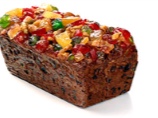



Rev. Jana Purkis-Brash – 4th Sunday in Advent: December 18. Luke 2:15-20; John 3:16
Today is the fourth Sunday of Advent, next week we will gather for worship to celebrate the birth of Jesus the newborn king.
These last four weeks we have spent in a season of expectation and hope. It is also a season of following — a time when we travel along with the Holy Family as they struggle with the hardships of peasant life in first-century Palestine. The Christmas story, as we have come to know it, includes much drama and tension, and we might even say absurdity.
The drama of Christmas begins in anxiety. An unplanned pregnancy is followed by an imperial summons to Bethlehem. Along the way there are mysterious angelic interventions, improvised accommodations for birth and royal orders of infanticide. Yet, in the midst of such challenging conditions,// newness and promise overflow. There is a father’s word of prophecy, a mother’s song of revolution, gift-toting wise men and praise-filled shepherds. Yes, the long hoped for Messiah will arrive — but not quite as we had expected, another point of absurdity.
When the Shepherds headed into town to see the Messiah I can imagine the whispering that might have taken place. “Did I hear correctly Eli, did the angel say, the sign is a baby that was born in Bethlehem?” Another shepherd says to the guy behind him, did that angel say, “to you is born this day in the city of David a Savior, who is the Messiah, the Lord?” A baby born// is the Messiah we have been waiting for, it’s absurd!!
Each year as we get ready to close Advent night, the highlight of the evening comes when kids and adults alike are all sugared up and we sing together “The Twelve Days of Christmas.” As we were singing this year I got to thinking,// I wonder how much it costs to purchase all those gifts? Have you ever wondered about that?// You may not be surprised, but I was, to find out that for more than 30 years PNC bank has calculated the prices of the 12 gifts from this song.
Take a guess at the total cost of purchasing all the gifts mentioned in the “12 Days of Christmas” song… This holiday extravaganza would cost $34,363 this year, an increase of just 0.7% from last year. The Consumer Price Index has risen about twice as fast, at 1.7% over the past 12 months.
The gift with the biggest price hike was the cost of two turtledoves ($375), which spiked 29 percent due to a shortage of the birds. Rising wages also drove up prices, with the cost of 11 pipers piping ($2,708) and 12 drummers drumming ($2,934) rising 2.8 percent this year. Granted, I don’t know where you would find them, but they are very expensive.
At $210, a partridge in a pear tree saw the biggest price decline this year. The cost of partridges fell to $20, thanks to an increase in supply. The cost of the pear tree ticked lower as well. While gold prices have gone up and down significantly over the past five years, the cost of five golden rings has held steady at $750.
All these extravagant gifts are for a true love. As a matter of fact the Hallmark Channel is showing a movie centered around these gifts to a beloved. Still, the real message of Christmas is not the gifts that we give to each other. Rather, it is a reminder of the gift that God has given to each of us. We are God’s true love, you are God’s true love.
This gift of love keeps on giving. This gift comes in the birth of a baby and the death of a man who gives his whole life to and for us. Jesus comes as forgiving love. “For God so loved the world that he gave his only Son, so that everyone who believes in him may not perish but may have eternal life.” In that gift of forgiving love also comes eternal life.
As we think about God’s gift of forgiving love, there are a few things I’d call to your attention: Continue reading “The Absurdity of Advent: Forgiving Love”

